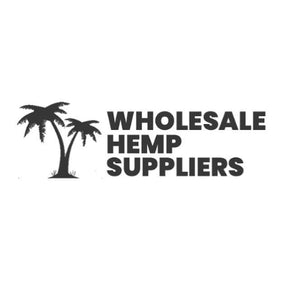An introduction to the oils we formulate with!
Delta 8 THC
Delta-8 THC is a psychoactive compound that’s pretty similar to delta-9 THC. Delta-9 THC is a compound in the cannabis plant that produces a “high.” It’s what people are usually referring to when they talk about THC. Though delta-8 is similar to delta-9 THC, it has a slightly different chemical structure that makes it a lot less potent. WHS is known for it's delta 8 gummies which you can buy wholesale under our brand VEED, or white-label with your own label for no extra cost!
CBD Isolate
CBD isolate is a compound that comes from the hemp plant. Because of the way manufacturers extract (or isolate) the CBD from all of the other components of the plant, it’s the purest form of CBD. It has been used to alleviate health ailments like anxiety, pain, inflammatory conditions, epilepsy, and cancer symptoms. But how well or if it actually works for all of these indications has yet to be determined.
Broad-Spectrum CBD
This type of CBD does not contain THC. It does contain other components of the cannabis plant, though, so it won’t be 100 percent CBD. Consider it the middle child of the three CBD choices. One potential plus of broad-spectrum CBD is that you have the highest chance of keeping a clear mind — no THC means no “high” feeling. WHS formulated with naturally extracted broad-spectrum oils, as well as custom formulated broad-spectrum profiles. Ex: CBD:CBN:CBG gummies!
Full-Spectrum CBD
Full-spectrum CBD contains several components of the cannabis plant, including trace amounts of tetrahydrocannabinol. Federally legal full-spectrum products will always have less than 0.3 percent THC. In states where cannabis is fully legal, you may also be able to find full-spectrum products with higher THC levels. One of the biggest benefits of full-spectrum CBD is that you’ll get what’s known as the entourage effect. This is a theory that says when multiple components of cannabis work together, you reap more benefits than when taking each individually. These components include: cannabinoids, flavonoids, terpenes. If you want to maximize the benefits of cannabis, full-spectrum CBD could be your best bet.
Hemp Derived Delta 9 THC
The 2018 Farm Bill legalized hemp at the federal level. This wasn’t complete legalization though: it’s only legal if it contains 0.3% or less delta-9 THC by dry weight. This is the main psychoactive component of cannabis. Hemp delta-9 is converted from CBD through an extraction process. There is no difference between hemp derived delta-9 and regular delta-9, aside from the source. The chemical itself is absolutely identical. The distinction between the delta-9s comes purely from the source, with hemp delta-9 coming from hemp and “regular” delta-9 coming from a standard cannabis plant. You can find hemp-derived delta 9 gummies like gummy cubes, nerd ropes, and more available wholesale from our brand VEED! Shop here!
HHC
HHC was first created in 1944 by the American chemist Roger Adams, when he added hydrogen molecules to Delta-9 THC. This process, known as hydrogenation, converts THC to hexahydrocannabinol (HHC). Hydrogenation isn’t limited to cannabinoid production. A similar process is used to convert vegetable oil to margarine.While Adams created HHC from conventional cannabis-derived THC, these days the cannabinoid is typically derived through a process that begins with hemp, the low-THC cannabis plant that was made federally legal by Congress in the 2018 farm bill. Chemically speaking, HHC includes a hydrogen molecule that THC does not. Consumers and scientists alike observe that HHC induces less potent and psychoactive effects than conventional delta-9 THC. HHC high is often equated with a delta-8 THC high.
THC-O
THC-O is the acetate ester form of THC, Like delta 10 THC and the other hemp-derived cannabinoids on the market, THC-O is chemically almost identical to delta 9 THC. Its effects are very similar to delta 9, but because it binds more tightly to the body’s cannabinoid receptors than the other THC forms, THC-O is more potent than delta 8, delta 10 or HHC–and in some cases, is even claimed stronger than delta 9 THC. In fact, THC-O is purported to be 2-3 times more powerful than the delta 9 THC found in marijuana. Many users describe THC-O as producing an almost psychedelic high, with borderline hallucinogenic effects. Both drug experts and sellers advise new users to go very slowly when trying this powerful cannabinoid.
CBN
CBN isn’t known to cause the intoxicating psychoactive effects associated with THC. Benefits of CBN may include (but aren’t limited to): Alleviating symptoms of anxiety and depression, Relieving pain related to conditions like multiple sclerosis, cancer and nerve damage, Reducing symptoms of arthritis, epilepsy, and treating opioid addiction alongside other interventions. CBN tends to bind with CB2 receptors in the body’s endocannabinoid system, which plays a role in central nervous system function and helps the body react to both internal and external stimuli. CB2 receptors are mostly associated with immune system regulation.
CBG
CBG, like CBD, is non-intoxicating and does not impart a high, despite its connection to THC. Research indicates it can bind to both CB1 and CB2 receptors within the body’s endocannabinoid system, meaning it not only interacts directly with the body’s internal systems, but can also counteract the effects of other cannabinoids, such as THC. A 2021 patient survey indicated a majority of patients found CBG-dominant products effective in treating their chronic pain, anxiety, and insomnia, among other conditions.
